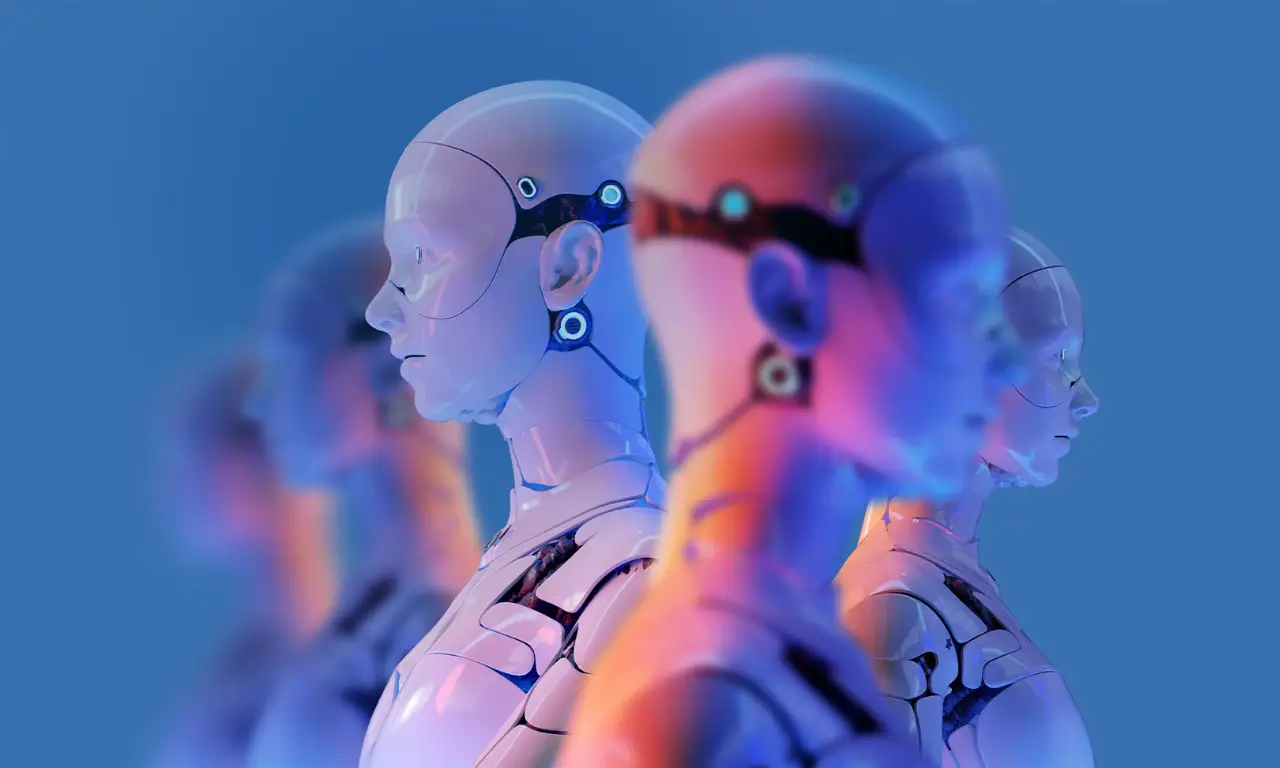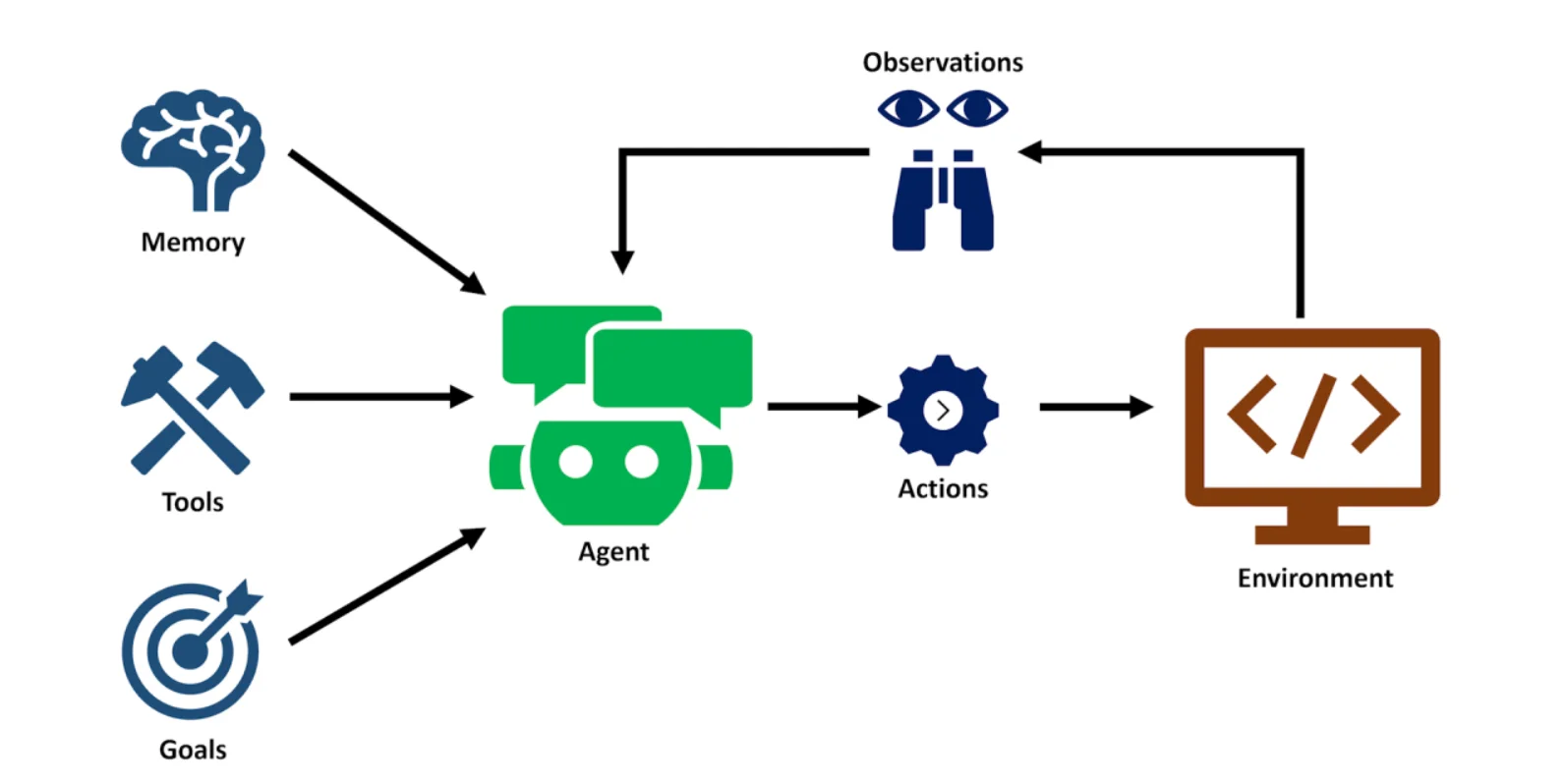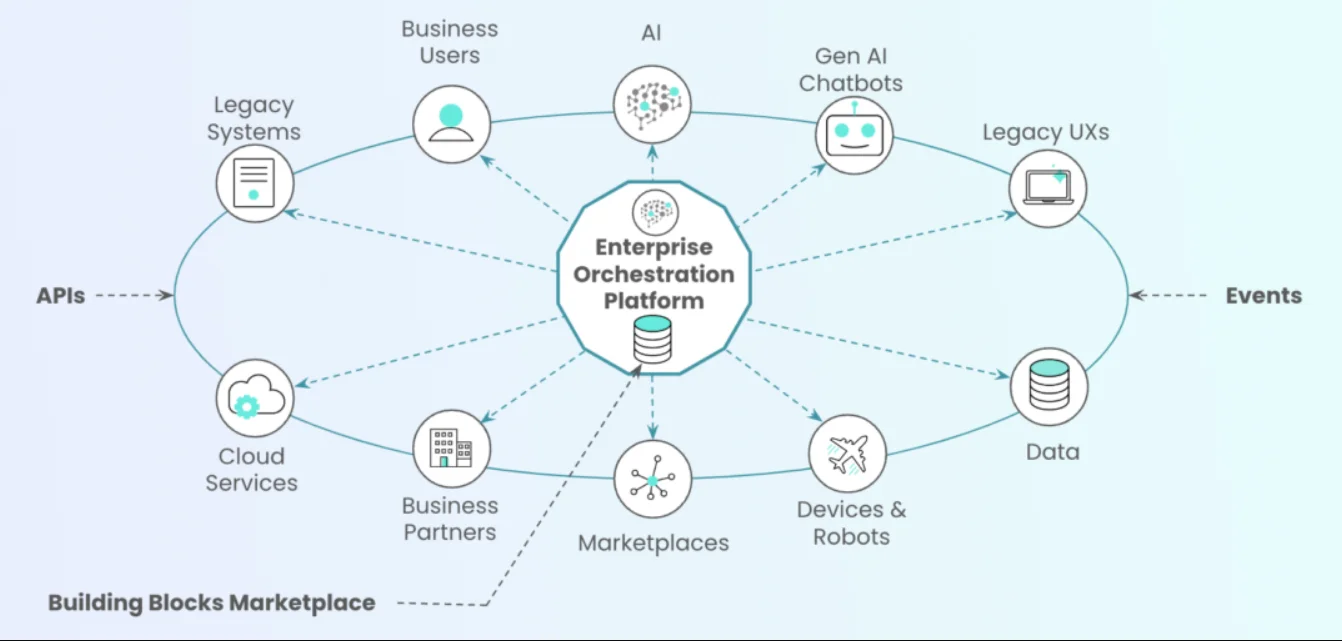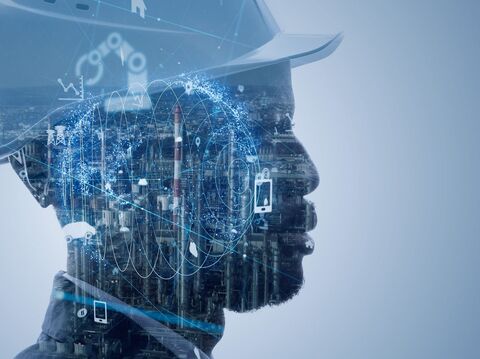Future of Agentic AI: What Agentic AI Will Look Like in 5 Years

Try picturing a supply-chain planner that spots late shipments before they happen and reroutes trucks on its own. That’s agentic AI in real life.
In the next five years, these goal-driven systems will reshape how Indian firms ship goods, lend money, and treat patients. Essentially, in every industry, agentic AI will have a significant impact!
Systems are now able to act independently, pursue goals, and adapt through learning. These agents can decide what to do and work with others in multi-agent systems using tools such as self-improvement, identifying intent, and reinforcement learning.
The future of agentic AI will change quickly over the next five years. Such systems will be of great importance in many application areas, including planning or growing business processes through AI orchestration.
We’ll discuss the transitions agentic AI has undergone, what the future may hold for it, and the possibilities and challenges within.
Evolution so far: How agentic AI has progressed
Agentic AI has sprinted from rigid rule books to self-improving problem-solvers in just three decades. The timeline below shows how each leap in computing power, data, and maths set the stage for today’s autonomous agents.
Rule-based beginnings
In the late ’80s and early ’90s, AI ran on hard-coded “if this, then that” rules. Every edge case needed a fresh line of code. It worked for simple scheduling or tax software, but the moment conditions changed, a human had to step in and patch the script. That pivot from rigid code from rules to reasoning unlocked a new level of flexibility.
These systems did not possess goal-directed behaviour or adaptability, and quite a bit of human assistance was required to carry out modifications. They were set in their ways and couldn't change because they couldn't learn from new things or events.
For a taste of where those brittle systems fell short, check out these agentic AI use cases that highlight today’s leaps.
Learning from data
As algorithms began to learn from data in the late 1990s, the idea of autonomous AI moved from theory to the factory floor. AI started to learn from data, finding trends and making guesses without being programmed to do so in every situation.
It became a hit with recommendation engines and predictive analytics during such a time. These breakthroughs laid the foundation for self-improving AI frameworks that refine tactics every time fresh data flows in.
Deep nets, deeper insights
Deep learning and neural networks were added in the 2010s, which made AI more powerful. AI could now process language, images, and sounds.
With this, AI planning and reasoning became more advanced. Agents started comprehending context, rendering their predictions on outcomes, and at times, changing their course of action based on such predictions.
Trial and error mastery
Reinforcement learning changed things again. An agent now tries, fails, learns, and levels up, all without fresh code. That is how robots learn to walk, how trading bots hunt micro-spreads, and how games like Go fell to AI champions.
This made it possible for them to work in complicated real-world situations, like teaching robots how to walk or making AI better than humans at chess.
Multi-agent systems
Modern manufacturing lines now rely on multi-agent systems that divvy up tasks and negotiate resources on the fly. Fleets of agents share data and split tasks, from balancing power grids to choreographing self-driving cars at a junction.
Tech trends that are driving the future of agentic AI
A short list of technologies will push agentic AI forward over the next five years. Nail these building blocks and scalable autonomy moves from lab demo to board-approved roadmap.

1. Self-improving AI
When AI agents use reinforcement learning, they try, fail, learn, and get better. As the reinforcement learning method improves, the AI agents will also enhance their decision-making and ability to handle new situations.
2. Better planning and reasoning
Agentic AI needs to be able to plan and reason well in order to handle difficult tasks. These skills help agents break down jobs into steps and determine the next course of action based on potential outcomes. This capability is crucial for developing AI that can plan ahead and act intentionally.
3. Multi-agent systems
In many real-world uses, one agent isn’t enough. That's why multi-agent systems are useful. They are groups of AI bots that work together. These systems will be crucial in places where working together is important, like the supply chain, smart cities, and even healthcare.
4. Smarter decision-making
When agents work in the real world, they will have to deal with uncertainty and changing conditions. They will be able to handle these problems better with the help of new decision-making algorithms, which will let them make choices faster and more accurately.
5. Understanding human intentions
AI needs to understand people in order to work well with them. That's why intent recognition is so important. It helps them figure out what we want, even if we don't say it obviously.

AI orchestration
When many AI systems work together, they need to be well-organised. AI workflow orchestration makes sure everything runs smoothly, like a conductor guiding an orchestra. This makes sure that many workers can work together without any problems or chaos.
To make this orchestration possible, strong AI Integration is essential between tools, data, and workflows.
Future applications of agentic AI by 2030
By 2030, agentic AI will sit inside everything from personal health coaches to factory-floor twins. According to Gartner, by 2028, 33% of business software will have agentic AI (up from less than 1% in 2024). This will let 15% of daily work decisions be made autonomously.
Agentic AI will power digital assistants, health coaches, and shopping bots that people use for personal tasks. Healthcare, banking, and manufacturing are among some industries that will rely on autonomous agents for smart supply chains, diagnosis, and investment strategies.
Agentic AI is already being utilised in smart cities to manage traffic, conserve energy, and automate public services.
AI agents will be able to run experiments and analyse data on their own, which will also help scientific studies. Multi-agent systems will primarily become proficient at collaborating on complex problem-solving. All aspects of life will utilise agentic AI to create better, faster, and more self-driving systems.
Predicted challenges for agentic AI in the coming years
Despite the hype, several agentic AI challenges could stall adoption if leaders ignore governance. Here are four hurdles that could slow roll-outs if leaders look the other way.
-
Unpredictability: One major concern is their unpredictable behaviour. As agentic AI is adaptable, it can make decisions with limited transparency. This makes troubleshooting hard and can make users less likely to trust the system.
-
Data privacy and security: Agentic AI works with huge amounts of personal and business data. So, it is very important to keep this data safe.
-
Bias: There is also the risk of bias, which happens when systems accidentally reflect or amplify biases from the training data, which can lead to unfair results.
-
Ethical and legal accountability: As these systems become more autonomous, ethical and legal responsibility becomes very important. Who is to blame when an AI agent makes a bad or harmful choice? These problems need to be fixed through better design, governance, and regulation to make sure that agentic AI is used safely and ethically.
Agentic AI vs AGI: 5-year perspective
Agentic AI is in production today. AGI is still a long-term research goal. The table shows how each could look in five years, so you can invest with clear timelines in mind.
| Aspect | Agentic AI | Artificial General Intelligence (AGI) |
|---|---|---|
| Definition | AI that works on specific tasks by setting and achieving goals on its own. | AI that aims to think and learn like humans in any area. |
| Main focus | Solving problems in specific areas using tools like reinforcement learning and planning. | Creating a machine that can handle any kind of thinking task, just like a human. |
| Level of intelligence | Smart in narrow areas but not across everything. | Smart across many areas, with a general understanding and reasoning. |
| Technology status | Already working and improving quickly with things like self-improving systems. | Still being researched with little real-world use. |
| Expected progress by 2030 | Will grow fast and be common in industries like health, finance, and transport. | Might see small steps forward, but full AGI is still far away. |
| Real use cases | Virtual assistants, chatbots, automation in business, and smart tools. | No everyday use yet. Mostly being tested in research labs. |
| Key challenges | Issues with bias, data privacy, and understanding how decisions are made. | Concerns about safety, ethics, and how to control such powerful systems. |
| Time to launch | Already being used and will keep growing over the next 5 years. | Likely to take decades before it becomes real. |
| Rules and regulations | Needs strong rules around fairness, transparency, and safe use in specific fields. | Needs deeper thinking about human values, risks, and control. |
| Impact | Will help many industries by improving how tasks are done. | Could completely change how we live and work if it becomes real. |
To explore how AI agents are categorised based on behaviour and autonomy, read our guide on the Types of AI Agents.
Expert opinions on the future of agentic AI
Sundar Pichai, CEO of Google, says that soon, AI agents will be able to do complex tasks for us while still letting us stay in charge. “These AI helpers will change how we make things and do work in many areas,” he said.
Demis Hassabis, CEO of DeepMind, says that AI could become as smart as humans in ten years. He warns that this will reshape jobs but also create new opportunities. He tells us to get ready for how AI will change the world.
Daniel Kokotajlo is an AI researcher (ex-OpenAI) who warns against AI that gets better too fast and can't be controlled. He says that AI should be developed carefully and responsibly to avoid risks.
Closing thoughts: Is agentic AI the next leap?
Agentic AI is no longer theoretical. In five years it will sit inside supply chains, finance desks, and hospital wards, driving faster decisions for less cost. Leaders who start small pilots now will grab that edge before the market catches up.
The organisations that experiment early, audit results, and refine fast will set the pace for everyone else.
With deep field experience, GrowthJockey continues to track these shifts and translate them into practical playbooks. Our team helps businesses implement AI and ML and turn today’s trials into tomorrow’s competitive advantage.
Future of Agentic AI FAQs
Can I invest in agentic AI?
Yes, investing in agentic AI is a good idea because more and more companies are using autonomous agents to make their businesses more efficient and open to new ideas.
Is agentic AI a hype?
Agentic AI is more than just a hype. It’s a growing technology with real-world applications and strong backing from leading tech firms and researchers.
What are the benefits of agentic AI?
Agentic AI makes automation better, improves decision-making, adapts to new situations, and makes it possible for smarter, goal-driven solutions to be used in many areas.
What is the future of AI?
The future of AI includes more autonomous agents, better collaboration between AI systems, advances in self-learning, and closer integration into daily life and business.








